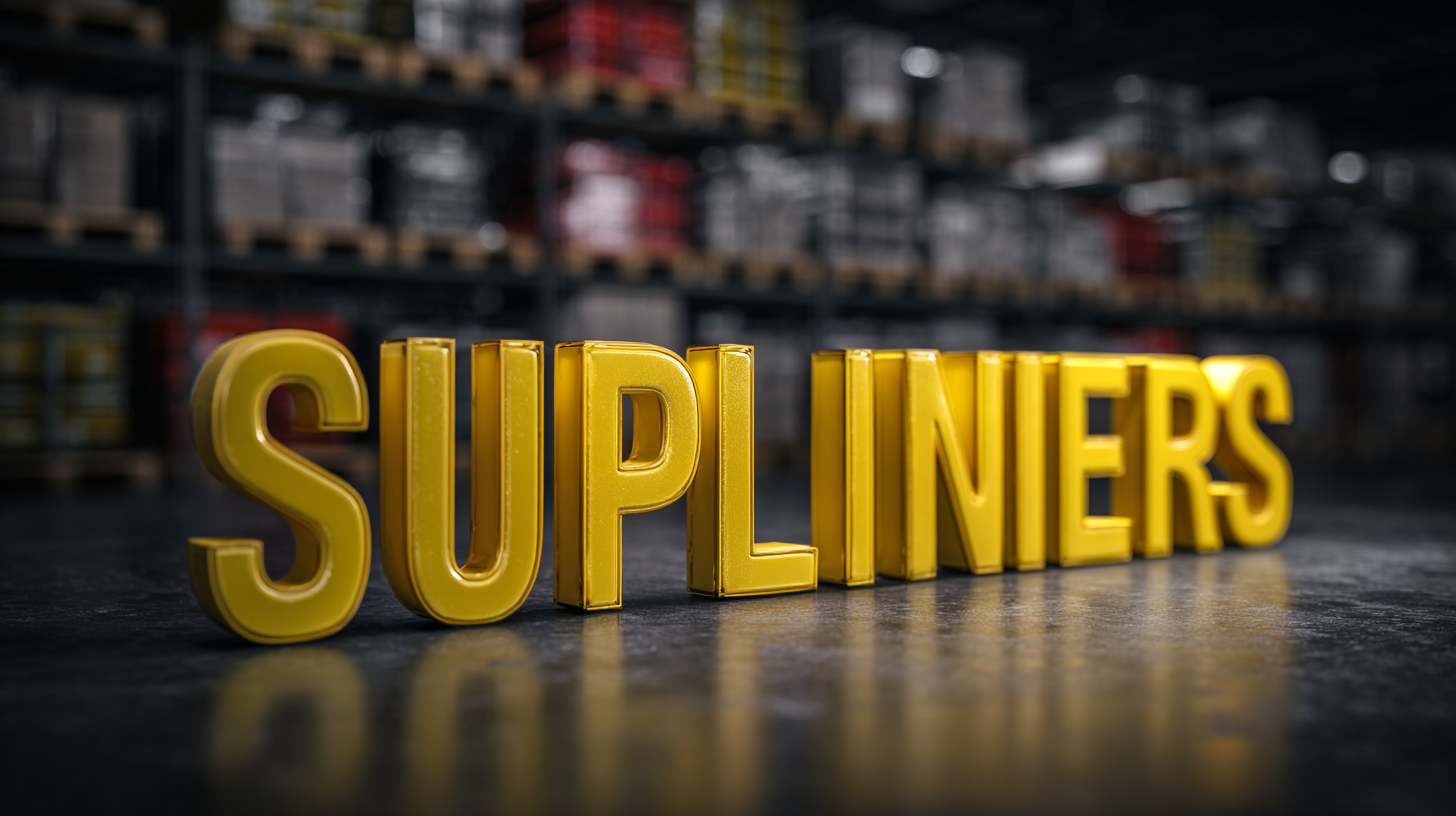
Top Strategies for Engaging with the Best Suppliers in the Manufacturing Sector
In the ever-evolving landscape of the manufacturing sector, engaging with the best suppliers has become a critical determinant of success. According to a report by McKinsey, over 50% of manufacturing leaders believe that supplier relationships significantly impact overall operational efficiency and product quality. As we approach 2025, technological advancements such as automation, AI, and IoT are reshaping supply chain dynamics, making it essential for manufacturers to forge strong partnerships with suppliers capable of adapting to these changes. Notably, a study from Deloitte highlights that manufacturers who actively collaborate with their suppliers see up to a 25% increase in innovation efficiency, demonstrating the undeniable value of strategic engagement in this arena. This blog will explore top strategies for effectively engaging with leading suppliers, ensuring that businesses remain competitive and resilient in the face of technological disruption.

Identifying Reliable Suppliers: Key Characteristics to Look For
When it comes to sourcing suppliers in the manufacturing sector, identifying reliable partners is crucial for ensuring quality and efficiency. One key characteristic to look for is a proven track record. Suppliers should possess a history of fulfilling orders on time and maintaining high-quality standards. This can often be verified through customer testimonials, case studies, or industry awards. Additionally, it’s beneficial to assess their financial stability, as this can directly impact their ability to deliver consistently over time.

Another important factor is transparency in their operations. A reliable supplier should be willing to share information regarding their manufacturing processes, quality control measures, and supply chain practices. This transparency fosters trust and allows you to make informed decisions. Furthermore, effective communication is essential. A good supplier will engage proactively, providing timely updates and being responsive to inquiries. This open line of communication not only enhances collaboration but also ensures that any potential issues can be addressed swiftly, safeguarding the integrity of your production timeline.
Building Strong Relationships: Communication Strategies for Success
Effective communication is the backbone of successful supplier relationships in the manufacturing sector. A 2022 report by Deloitte highlights that companies with strong communication strategies see a 25% increase in supplier performance metrics. To foster this environment, manufacturers should prioritize transparency and regular discourse. Sharing production needs, potential challenges, and future forecasts can help suppliers align their offerings more closely with client expectations.
Tip 1: Schedule regular check-ins with suppliers to discuss ongoing projects and address any arising issues promptly. This proactive approach not only enhances cooperation but also builds trust, which is essential for long-term partnerships.
Moreover, employing a collaborative approach can lead to innovation. According to a study by McKinsey, 71% of manufacturers reported that involving suppliers in the product development process led to significant improvements in quality and cost. Engaging suppliers early in the design phase can help identify potential obstacles and streamline the manufacturing process.
Tip 2: Create joint development sessions to brainstorm ideas and solutions with your suppliers. Encouraging open dialogue allows for the exchange of insights that can bolster innovation and efficiency throughout the production cycle.
Leveraging Technology: Tools for Efficient Supplier Engagement
In today's fast-paced manufacturing sector, effective supplier engagement is crucial for optimizing operations and ensuring quality. Leveraging technology not only streamlines communication but also enhances collaboration between manufacturers and their suppliers. One of the most impactful tools is Supplier Relationship Management (SRM) software, which allows companies to track supplier performance, manage procurement processes, and analyze data seamlessly. This centralized approach fosters transparency and accountability, enabling businesses to make informed decisions quickly.
Moreover, advancements in artificial intelligence and machine learning are transforming supplier engagement. Predictive analytics can help manufacturers forecast demand and assess supplier reliability, reducing risks associated with supply chain disruptions. Additionally, utilizing cloud-based platforms facilitates real-time communication, allowing manufacturers to share feedback and collaborate on projects with suppliers regardless of geographical barriers. By embracing these technological tools, manufacturers can build stronger partnerships, drive efficiency, and remain competitive in the ever-evolving landscape of the manufacturing industry.
Top Strategies for Engaging with the Best Suppliers in the Manufacturing Sector
Negotiation Tips: Achieving Win-Win Outcomes with Suppliers
Negotiating with suppliers is integral to achieving successful business outcomes in the manufacturing sector. Research indicates that companies that utilize structured negotiation strategies can realize up to a 20% reduction in costs while enhancing supplier relationships (Source: Procurement Leaders, 2022). One effective strategy is to enter negotiations with a clear understanding of both parties’ needs. Establishing a collaborative atmosphere encourages suppliers to engage openly about pricing, delivery schedules, and quality expectations, facilitating a win-win outcome.

Furthermore, leveraging data analytics can significantly improve negotiation tactics. According to a report by Deloitte (2023), organizations employing data-driven decision-making during negotiations see a 30% increase in successful contract terms. By analyzing market trends, historical supplier performance, and the competitive landscape, manufacturers can better validate their requests and position themselves favorably in discussions. Ultimately, fostering transparent communication and utilizing analytical insights enables manufacturers to secure more favorable agreements while maintaining strong partnerships with their suppliers.
Evaluating Supplier Performance: Metrics and Best Practices
Evaluating supplier performance is crucial for businesses in the manufacturing sector, as it directly impacts the overall quality of products and the efficiency of operations. One effective strategy is to establish clear metrics that align with company goals. Common metrics include on-time delivery rates, quality defect rates, and cost variability. By regularly analyzing these indicators, manufacturers can identify trends and areas for improvement, ensuring they collaborate with suppliers who meet or exceed expectations.
Another best practice is to maintain open lines of communication with suppliers. Regular performance reviews, feedback sessions, and collaborative problem-solving can foster stronger relationships. This transparency enables both parties to address concerns promptly and collaboratively, ultimately enhancing mutual trust. By engaging suppliers in discussions about their performance metrics, manufacturers not only promote accountability but also pave the way for continuous improvement and innovation in the supply chain process.
